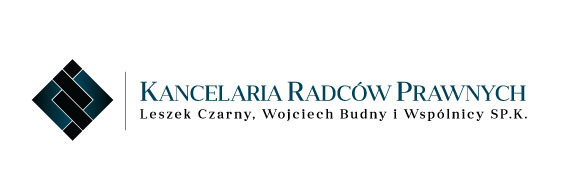Super User
Scotland

Walker Love is a firm of Messenger-at-Arms and Sheriff Officers, being the authorised judicial officers in Scotland for the hand service of legal documents and enforcement of civil judgments.
We also provide a range of pre-court enquiry services, debt recovery / amicable collection, tracing and highly professional investigation services to both our Scottish and international clients.
Walker Love is a 3rd generation family business which began trading Glasgow in 1946. From humble origins, our business has continued to expand by way of strategic acquisitions, mergers and organic growth. The firm is now a nationwide market leader with eleven local offices throughout Scotland. We are the largest partnership of its kind in Scotland wholly owned and controlled by Judicial Officers.
Citation & Diligence - For over 65 years Walker Love has provided comprehensive Citation and Diligence services to principal firms of solicitors and other professional services businesses across Scotland. Through our international network, Connexx, we now provide our clients with debt recovery, Citation (process serving) and Diligence (civil enforcement) services throughout Europe and beyond.
Our services include:
- Debt Recovery
- Pre-sue and insolvency enquires
- Hand service of legal documents throughout Scotland.
- Intimation of statutory notices
- Execution of Diligence (Judgement enforcement)
- Witness tracing and Citation
- Evictions and repossessions
We have the resources, experience and local knowledge you require to provide an efficient, sensitive and professional service which will not only meet but exceed your requirements.
National Coverage - We have over 40 Sheriff Officers and Messengers-at-Arms, operating from 11 offices throughout the whole of Scotland, thereby providing a truly national service.
Quality Assurance - Our firm presently holds several externally verified quality assurance standards, including: Investors In People, UKAS ISO27001 and ISO9001.
Social Responsibility - Walker Love is committed to tackling not only the impact of debt on individuals’ lives but also the causes of debt and its wider consequences. The firm has established links with Money Advice, Citizens Advice Scotland and fully supports the Scottish Government’s policy in this area by providing individuals experiencing financial difficulties with information and onward referral advice to help them improve their situation.
Our Values - Walker Love has a duty and responsibility for enforcing the civil law in Scotland and our values represent the very essence of our firm. We treat our clients, and by extension their customers, ethically and fairly and we deliver the firm’s values in all that we do.
Debt Recovery Services - Whether it is simply an overdue account or a difficult hard-core debt, our debt recovery specialists have the expertise, wherewithal and access to the right business and personal intelligence databases, to retrieve your debt as quickly and efficiently as possible.
We provide debt recovery services to a range of businesses, financial services institutions, utility companies, professional services firms, public sector bodies and government agencies.
Our experienced debt collectors will provide you with an initial assessment of your debt position and recommend the best approach to recovering your debts. The type of approach we take to recovering your debts will be dependent upon your specific business circumstances, and relationship with the debtor e.g. in terms of their future business potential, and our expert advice regarding the debtor’s propensity to pay.
We will target our resources and debt recovery methods effectively and cohesively to trace, maximise collection and minimise your financial outlay and disruption to your cash flow. Our debt recovery and enforcement services are compliant with all statutory regulation and Government and OFT guidelines.
Raising Proceedings in Scotland - Where amicable collection has failed and enquires have led us to believe that the debtor has suitable assets and income, then we can instruct a solicitor ( lawyer ) specialising in debt recovery, to initiate a court action normally in the court jurisdiction where the debtor is located. Needless to say undefended actions proceed very quickly, however if the debt is disputed then there will be a judicial process which will take several months to complete. As each case is different, this will dictate the length and cost of the legal process.
Enforcement Options - Where we have taken a debtor to court and obtained decree ( judgement / enforceable title ), then our highly professional Sheriff Officers will initiate the most effective enforcement process, dependent on the debtor’s individual circumstances, which may include :-
Arrestment of Earnings – an employer will receive an arrestment schedule on your behalf instructing them to deduct money from the debtor’s wages until the debt has been repaid.
Bank arrestment – you can arrest a bank, building society or credit union account. The money will be frozen and removed at this point and the debtor will not be able to make withdrawals or make other payments.
Other arrestments – creditors can arrest both goods and money which are in the hands of a third party including movable property.
Attachment – a creditor may instruct a Sheriff Officer to attach items owned by the debtor which are kept outside dwelling house, such as a motor vehicle. Once attached the debtor cannot do anything with these items which can then be sold to help pay off the debt.
Inhibition - against the debtor’s home – this will stop the selling or transferring of ownership or taking out other loans secured against the property.
Bankruptcy – a creditor can petition the Sheriff Court to make the debtor bankrupt, however the debt must be at least £3,000 (including interest and charges).
Costs - In respect of amicable collection, unless there is a suitable provision contained in the terms and conditions of any contract with the debtor, then any commission charged on sums collected is not chargeable to and recoverable from the debtor.
In respect of suing and enforcement, the general principal in Scotland, is that the debtor is required to pay the reasonable costs of the court process and also the Sheriff Officer’s highly regulated enforcement fees.
We will always endeavour to provide an indication of the anticipated fees at the point of instruction, however we have no way of anticipating the level of resistance from the debtor, which will ultimately dictate the time and effort required to bring the matter to a satisfactory conclusion.
For more information, visit our website www.walkerlove.com
Poland

The legal chamber Leszek Czarny, Wojciech Budny and Partners limited partnership was founded in 2003 and its partners are: Leszek Czarny, Wojciech Budny and Michał Kuryłek.
The Office renders services to individuals and legal persons. Among the wide range of clients there are, apart from domestic entrepreneurs, also foreign subjects.

DEBT MARKET IN POLAND
HISTORICAL OVERVIEW
Rapid development of the recovery and debt trading market in Poland took place after the year 1990, as a result of the country's economic transformation. Initially, the activities of debt collection companies expanded in two main directions:
• trading of debts of large state-owned enterprises, mainly from the heavy industry sector (mines, smelting plants, arms industry) - main factor affecting the development of this market segment was the possibility of settling tax liabilities with the acquired claims against the State Treasury,
• trading of claims against the national health care service.
Since the mid-90s, interest in commercial receivables has rapidly grown, which in the subsequent years resulted in a dynamic development of companies involved in handling this type of debt.
DEBT MARKET SEGMENTS
Division of the debt market into segments can be done due to, among other things, the type of debt.
According to the most commonly used classification we can distinguish:
• mass debt market (consumer - B2C)
• business debt market (B2B)
The consumer debt market (B2C), also called the mass debt market, refers to the debts of individuals (abbreviation B2C Business-to-Consumer is the name of the relations between a company and a customer). The term concerns debts in the business sector, financial sector, telecommunications and energy sectors. It usually refers to the low-value obligations of households, i.e. invoiced liabilities (telecommunications, gas, electricity), loans, insurance premiums, etc.
The business debt market (B2B) refers to debts of companies (liabilities of enterprises due to other enterprises) related with delivery of goods and services. B2B receivables, unlike B2C, do not have a mass character (the number of debtors in a single creditor is usually small), while the average value of one commitment is significantly higher than in the case of consumer debt.

BUSINESS MODEL
• Purchase of debt portfolio,
• Encashment (commissioned recovery),
• Collection on one’s own.
Purchase of Debt Portfolio - Debt changes its owner and the debt collection company in charge of the debt, assumes the entire risk associated with managing the receivables, and operates in its own name. It is a very expensive business because collectors need to have means to purchase debt portfolios, but they are also able to select a recovery strategy, and they may use such tools and methods that suit them in the longer perspective than the Encashment model. The business model in force since 2005.
Encashment (commisioned recovery) – collection agency operates to its client’s order, i.e. the creditor (the person or company to which we owe money) instructs its debt collection. Debt collection agency recovers the debt on behalf of the creditor, against payment contingent upon the successful negotiation of the debt repayment. Methods and tools for recovery must be agreed with the person ordering the recovery and the duration of recovery is usually shorter than in the case of debt portfolios recovery. Predominant business model up to 2005.
Collection on one’s own - ruling model in the 90-ties of the last century.
MARKET GROWTH FORECAST
• Increased value of loans granted,
• Increased tendency of creditors to outsource debt recovery,
• Growing number and value of debt buying transactions.
SUMMARY
Domestic companies are still growing rapidly, banks are increasingly willing to sell still new debt portfolios, and large multinational companies have joined the struggle for the receivables on sale. In this context, it is not surprising that the Polish market is held up as a model for other countries in Central and Eastern Europe, and it is no longer perceived as a developing market, but a mature one.
The mere glance at the figures shows that over the years, debt trading in Poland has become a serious and profitable business.
It is estimated that still in 2011-2012, retail portfolios with a nominal value of about PLN 7 billion were sold. Today, one can talk of a supply of up to PLN 16 billion. Moreover, it is possible that in the coming years, this result will be further improved as sill relatively few portfolios secured by mortgages get on the market.
For more information, visit our website: www.czarny-budny.pl
Ireland

WALES AND CO SERVICES
Wales and Co Solicitors www.walesco.ie
Tel No- 00 353 1 2935110
Email-
We are an established firm of Solicitors/Lawyers specialising in debt collection
We undertake amicable debt collection, issue of legal proceedings, obtaining judgment and enforcement of judgments through the Court process.
We undertake cross border collections through the Connexx network.
We can review your paperwork to advise you of our opinion as to the collectability of your debt.
We can advise you pre -contract stage as to the issues that you would need to be mindful of before entering into a contract with your customer in Southern Ireland, in particular to ensure that your terms and conditions are in accordance with Irish law and are appropriate to the contact..
Our particular geographical jurisdiction is Southern Ireland.
Re costs these are calculated on a case by case basis and we suggest you contact us at for a specific quotation or for further information.
Germany

BAYH & FINGERLE Rechtsanwälte in Partnerschaft
(lawyers in civil partnership according to German law)
BAYH CM (= collection management) is the debt collection branch of BAYH & FINGERLE, a lawyer’s chambers being specialised and active in the field of debt collection since 1983.
Covering debt collection on a national level
BAYH CM is one of the nationwide leading firms in this business with commercial clients all over Germany. For years BAYH CM has served international clients, too, in recovering open claims in Germany.
Staff
The debt collection departments are situated in Stuttgart and Hamburg. There are 4 lawyers exclusively working in debt collection as well as 16 other staff members.
Debt Collection in Germany
Why do you find among all the judicial officers being members of CONNEXX law firm? In Germany there are no self employed judicial officers but only court bailiffs who are government employees. They are commissioned by the law courts and are just allowed to act in the course of forced execution according to the orders of the court. Hence debt collection is an area of activity of law firms.
Amicable Debt Collection
Usually we introduce debt collection by one up to three extra judicial reminders and – if requested – by a telephone call to the debtor. The reminders are automatically carried out in between intervals of 10 days or as accorded with the client.
In accordance with its CONNEXX partner, BAYH CM offers to their clients in case of unsuccessful amicable debt collection, costs that are limited to a lump sum of 50,00 EURO (without vat). If the client wishes supplementary inquiries the costs for these are added.
Inquiries and Solvency Researches
We recommend to our clients to have a solvency research commissioned particularly within higher claims. Different possibilities can be offered within a price range up to 8,00 EURO up to 230 EURO to obtain solid data about the debtor.
Legal Dunning Proceedings
According to the general experience in debt collection more than 90 % of all claims rest undisputed. But in case the amicable reminders remain without success we usually recommend to our clients the introduction of legal proceedings. In European-wide cross boarder collection we’d mostly refer to the European Enforcement Order where we cooperate with our CONNEX-partners. Depending on the lieu of jurisdiction, and depending on the national law to be applied to in the individual case, we intent to provide the best solution to the client.
It could also be considered to revert on the special German dunning proceeding (gerichtliches Mahnverfahren) especially when the debtor is a consumer or / and there is need of hurry and the proceedings refer to German lieu of jurisdiction. Compared to the European Payment Order-procedure it might be possible to obtain a provisionally enforceable title in Germany in a shorter lap of time.
In opposition to the European Enforcement Order dunning proceedings in Germany take place in two stages; the first step is entered with a so called court order (Mahnbescheid). This, the debtor can appeal against (Widerspruch) in between a deadline of 14 days after service. If he doesn’t do so we demand for the creditor the provisionally enforceable payment order (Vollstreckungsbescheid). The debtor still has the possibility for an opposition against the payment order in a deadline of 14 days, yet execution can be introduced. The steps we have to take for our clients are automatically processed.
The costs depend on the value of the claim. The court fees are statutorily regulated as well as those for the lawyers, each based on a sliding scale. We might give you some examples:
| Disputed claim in € | Court fees in € | Lawyer’s fees in € |
| 500,00 | 23,00 | 81,00 |
| 1.000,00 | 27,50 | 147,50 |
| 5.000,00 | 60,50 | 471,50 |
| 10.000,00 | 98,00 | 749,00 |
| 50.000,00 | 228,00 | 1.589,00 |
| 100.000,00 | 428,00 | 2.051,00 |
The lawyer’s fees don’t include VAT.
In case of an appeal against the court order the case will be disputed and transferred to the responsible law court.
It has to be highlighted that the debtor is obliged to reimburse all the costs from the creditor being based on legal fees that occurred in dunning proceedings if there is no opposition. This also applies for the lawyer’s fees.
If it was evident that the continuation of the case would be without success the client is free to end the activities. In accordance with its CONNEXX partners, BAYH CM will charge for its own service a lump sum of 50,00 EURO (without vat). In addition to this, disbursements for court fees would have to be paid for.
Legal Proceedings in Disputed Claims
As law firm BAYH & FINGERLE is naturally authorized to introduce legal proceedings in disputed cases at all the law courts in Germany, except from the Federal Law Court (Bundesgerichtshof) where only a restricted number of laywer’s are admitted who are exclusively active only there.
The lawyers of BAYH CM are all specialized in and have experience in running court proceedings also in cases with points of contact to the international private law and the international civil procedure law. Although BAYH CM is able to provide a high standard of representation in court proceedings, the main ambition is not a performance of long rows of arguments in a number of never ending court hearings but to obtain for the client a reasonable economic solution.
Here we do have to point out a particular characteristic of German court proceedings: the court is legally obliged to induct a settlement between the parties on every stage of the proceeding (e. g. par. 273 (4) of the German Civil Procedure Code). That specialty is what foreign clients have to get used to especially from Roman countries where the parties “either live or die”. But the parties are not forced to agree in a settlement if they don’t feel to do so. BAYH CM are used to weigh all pros and cons with their clients in order to achieve a economically satisfying solution.
By the way: the non-negligible number of settlements is one of the reasons why court proceedings in Germany don’t take as much time as in other countries.
Concerning the costs of the procedure here can be referred to the explanations above for the dunning proceedings. Basically the legal rules are applied. Because of the higher time and effort the costs are superior compared with those for the dunning proceedings. Her again some figures:
| Disputed claim in € | Court fees in € | Lawyer’s fees in € |
| 500,00 | 105,00 | 132,50 - 177,50 |
| 1.000,00 | 165,00 | 232,50 - 317,50 |
| 5.000,00 | 363,00 | 772,50 - 975,00 |
| 10.000,00 | 588,00 | 1.235,00 – 1.721,00 |
| 50.000,00 | 1.368,00 | 2.635,00 – 3.681,00 |
| 100.000,00 | 2.568,00 | 3.405,00 – 4.759,00 |
All prices mentioned above don’t include vat.
It is important to explain that the legal lawyers fees represent a minimum level. BAYH CM is granting the legal fees in disputed cases in general where the procedure is restricted on application and initiation of procedures and one court hearing. In case of higher efforts BAYH CM will ask their clients for an hourly rated remuneration. The costs depend on the individual case. One can calculate with an average of 220,00 EURO per hour.
Again it has to be underlined that the creditor is entitled to claim from the debtor to restore the legal fees in case he wins the case but not the exceeding costs based upon the remuneration contract.
Forced execution
We already explained above the system of forced execution in Germany. The creditors – mostly represented by their lawyers - in possession of an enforceable title do have to address the local court (Amtsgericht) responsible for the execution, the so-called Vollstreckungsgericht. Quite usually that is the court where the debtor is situated. The creditor has to ask for the kind of execution, in general beginning with the seizure.
The body competent to carry out the execution is the court bailiff.
As law firm specialised in the field of debt collection it is the ambition of BAYH CM to render to its clients a developed service in execution. An analysis of the creditor’s liquidity, earnings and asset situation can be made based on solvency checks before the introduction of the execution. Proposals will be forwarded on which way of execution could be the most effective.
The debtor is obliged to bear all expenses that occur to the creditor in course of forced execution. Although BAYH CM always intents to prevent superfluous activities and costs, the solvency of the debtor is not always guaranteed. Costs and fees in execution are again regulated legally. According to German law the debtor is obliged to compensate all legally regulated costs arising to the creditor in course of the execution.
Here too, BAYH CM offer to their clients in accordance with its CONNEXX partners in case of an unsuccessful execution the limitation of costs restricted to a lump sum of 50,00 EURO (without vat) and disbursement.
In seldom and exceptional collection cases, in case of further and costly in term of time measures (e. g. the seizure of shipping and execution levelled on real property) BAYH CM asks its clients for a reimbursement agreement based on an hourly rated fee of in general 150,00 EURO per hour.
Title monitoring
BAYH CM at last offers clients the possibility of title monitoring. A first attempt of execution might not always be successful. The claim out of a legally binding title last 30 years according to German law. If the execution reveals that a debtor – here a natural person - is not able to fulfil his duty, the creditor is entitled to demand from the debtor’s issue of an affidavit. This action has to be recorded in the debtor’s register. The registration accounts for a period of three years that a bailiff will not accomplish further executions in this time (apart that the creditor supplies him with solid information about an improvement of the debtor’s income- and asset situation.
Title monitoring implies that BAYH CM regularly takes care for a scrutiny concerning the debtor’s economic situation after the above mentioned period. Apart from special creditor requests the title monitoring stays free of costs for the creditor. The remuneration is based on a participation of 50 % after deduction of the expenses incurred.
For more information visite our website www.bayh-fingerle.de
France


LEXIMPACT – https://www.leximpact.net/
– (+33) 1 23 45 67 89 -
LEXIMPACT is a French Judicial Officer network which covers all of France territory. Our network consists 164 judicial officers and 700 employees. Each French judicial officer has his own territorial monopoly and LEXIMPCT network provides a single contact for the entire national territory.
We are appointed for judgement enforcement and amicable debt collection. We can assist you from your outstanding payment to the obtainment of judgment and its enforcement.
We are also competent for the search of evidence before or after the lawsuit, and certification of visible facts.
We are specialized in the following non exclusives issues:
• National and international judgment enforcement
• Serving of documents
• Land and property evictions
• Investigations on debtors
• Insolvency checks for individuals and companies
• Amicable debt collection
Our costs and fees are statutory for law enforcement and negotiable for amicable debt collection or insolvency checks.
As appointed agents, bailiffs are the only ones in France authorized to enforce debt collection. The use of an external agent would only add an additional intermediary and would increase the time and costs of processing your file.
You can contact us for any interrogation about French law or debts collection on our website https://www.leximpact.net/ or at .
Mathieu PIERSON
Estonia

According to the Estonian law of enforcement procedure the judicial officers, who carry out execution proceedings, are called bailiffs (in Estonian: kohtutäiturid). The bailiffs have independent and liberal status. The profession and admission to it are strictly regulated – bailiffs are operating under deontological, disciplinary, and professional rules for which they are required to take out liability insurance coverage. They are appointed by the Ministry of Justice. There are approximately 52 judicial officers, spread across the sixteen regions that make up the territory of Estonia. They are attached to a territorial jurisdiction.
There are several laws in Estonia that regulate the enforcement procedures. The most basic law that bailiff relies on in the procedures is the Code of Enforcement Procedure (hereinafter referred to as CEP). Enforcement proceedings can only be started on basis of certain enforcement instruments (for example court judgments and rulings; administrative acts; notarized agreements and so on). Full list is stated in section 2 of the CEP. With each enforcement instrument the bailiff is obliged to check, whether the enforcement instrument complies with the requirements of law. Nevertheless the bailiff does not have the right to substantively analyze the claim. Therefore one of the fundamental principles of enforcement procedures is formalization, which basically means that the bailiff is justified to give legal opinions only on the matter concerning the enforcement procedures and their compliance with law, but no more. So if any question arises about the warranty of the claim then the debtor and the claimant have to sort it out between themselves or with court’s aid.
Starting of enforcement proceedings
Enforcement proceedings are usually started on the basis of application for enforcement and the enforcement instrument. In addition to formal check of enforcement instrument it is important to verify whether the debtor (or debtor’s property) resides in bailiff’s territorial jurisdiction. In Estonia there are four territorial jurisdictions (Harju, Pärnu, Tartu, Viru).
After opening the enforcement file bailiff delivers an enforcement notice to a debtor. There are several ways of delivering the documents to the debtor including personal delivery, delivery via e-mail, internet and so on.
Term for voluntary compliance and bailiff’s fee
After the documents are delivered the debtor will always be given some time to pay the claim or voluntarily comply with the enforcement instrument with the enforcement instrument. According to CEP §25 subsection 1 the term for voluntary compliance cannot be shorter than 10 days or longer than 30 days. The term can be prolonged with the consent of a claimant.
During the term for voluntary compliance the bailiff does not usually take any additional measures and waits for the debtor to pay the debt voluntarily. When the term for voluntary compliance has passed and the debtor has not complied with the enforcement instrument, the bailiff has to move on with enforcement proceedings and take immediately all the measures permitted by law in order to enforce an enforcement instrument, collect information necessary for enforcement proceedings and explain the rights and obligations of participants in enforcement proceedings to participants (CEP §8). In Estonia it is quite beneficial for the debtor to comply with the enforcement instrument during the term for voluntary compliance because the debtor has actual financial interest in this. If the requirement is fulfilled during the term for voluntary compliance then the debtor is required to pay the bailiff’s fee only in the amount of one-half of the fee prescribed by law (hereinafter referred to as BA). The bailiff’s fee is usually paid by debtor (BA § 30). The size of bailiff’s fees are fixed by law and the law forbids the bailiff to make any other agreements on this matter – a bailiff is prohibited from entering into agreements to alter the rates of fees or the procedure for the charging of fees provided by law.
According to BA the bailiff’s fee in Estonia is divided into three parts: fee for commencement of enforcement proceedings, basic fee and additional fee. Basic fee is the one fee component that depends on the amount of claim for payment and it is calculated according to the § 35 of the BA. Value added tax (20%) is added to the bailiff’s fee
As mentioned, if the term for voluntary compliance has passed and the debtor has not complied with the enforcement instrument, the bailiff is obliged to immediately take all the measures permitted by law in order to enforce an enforcement instrument. The permitted measures are different and vary depending on different factors - enforcement instrument, the size of the claim etc.
Seizing debtor’s account
CEP provides the ground for making claim for payment on debtor’s account or in other words seizure of the debtor’s bank accounts, which results in the fact that the debtor cannot withdraw or in any other way use the money on his or her account until the claim is fulfilled. In Estonia the seizing of accounts is done mostly electronically According to CEP the debtor has the right for the minimum monthly wage (290€) not to be seized. If a debtor maintains another person or pays alimony to him or her, the amount not subject to seizure increases by one-third of the minimum monthly wages per each dependant unless a claim for support for a child is subject to compulsory execution (CEP §132). It is debtor’s responsibility and obligation to inform the bailiff about debtor’s incomes and the bank that debtor wishes to withdraw his or her monthly wage. Therefore the debtor has to make an application to the bailiff and add necessary documents to the application. The bailiff annuls the seizure of the account within three working days to the extent, which guarantees the income not subject to seizure, for the debtor per each prepaid month or informs the debtor about the necessity of presenting additional documents.
Seizing debtor’s income
This also applies in case of seizing debtor’s income. In order to make a claim for payment on a claim, a bailiff seizes the claim and obliges a third person who has obligations to a debtor to perform the obligations to the bailiff for the benefit of a claimant. The bailiff, by an instrument of seizure, prohibits the debtor from disposing of the claim, in particular from collecting the claim. Third person is obliged to comply with the seizure act. If the third person refuses without legal basis to enforce the instrument of seizure or does not enforce it as required, the bailiff has the right to make a decision for performance of obligation and a warning concerning the imposition of a penalty payment. Penalty payment is payment, which is applied if the third person fails to enforce the instrument of seizure without appropriate legal basis. The penalty payment is collected into the state budget. The amount of penalty payment, which is imposed for the first time, is not less than 192 Euros or more than 767 Euros and upon a repeated imposition the payment is not more than 1917 Euros.
Seizing of debtor’s assets
The bailiff has the right to make claim on debtor’s other assets, movables and immovables. Upon seizure, the asset is be evaluated and the price is be indicated in the instrument of seizure. Property is evaluated with the agreement of a debtor and a claimant. If the parties do not reach the agreement, then the property is going to be evaluated by bailiff or by an expert.
Selling of debtor’s assets
According to CEP the property can be sold using different methods. Public auction, for instance, can be written, oral or electronic (according to CEP § 78). The time and the place of the auction are determined by bailiff. Everybody has the right to participate and make bids. In the case of an auction of an immovable, a bailiff may determine deposit for the auction participants in the amount of up to 10 per cent of the starting price. If deposit is determined, a person who wishes to participate in the auction is obliged to pay the deposit. Best bidder wins the auction and he or she has to pay the purchase price immediately after the end of the auction. If the purchase price exceeds 12,700 Euros, the winner of an oral auction is obliged to pay one-tenth of the purchase price immediately after the end of the auction, the rest of the price shall be paid within 15 days. If a purchaser wishes to buy an asset sold at an auction by a loan granted by a credit institution, he or she has to notify a bailiff thereof immediately after his or her bid is declared to be the best. The purchaser undertakes to pay the total purchase price or ensure performance of the obligation to pay the purchase price by a credit institution within fifteen days as of the day following the date the bid is declared to be the best. A bailiff prepares a report on an auction which is signed by the bailiff and impartial observers.
Upon failure of an auction, a claimant may demand that a repeated auction be organized. In case of the repeated auction the bailiff may reduce the price of things, but not more than by 25 per cent compared to the starting price of the previous auction (CEP § 100 subsection 5). The bailiff has the right to repeatedly organize the auction until the price of the asset has been reduced up to 70 per cent compared to the starting price at the first auction.
It is also possible to sell the property in other manner – for example the debtor can find a buyer for the property and sell it under the supervision of a bailiff.
Termination of the case
Basic grounds for terminating the enforcement procedures are stated in CEP § 48 according to which the proceedings are terminated on the following basis:
1) on the basis of an application of a claimant;
2) upon submission of a written document if it is evident from the document that the claim of the claimant has been satisfied;
3) if money required for the satisfaction of a claim has been paid to the bailiff or an action indicated in the enforcement instrument is performed;
4) upon submission of a court decision by which an enforcement instrument accepted for enforcement or an obligation to immediately enforce it is revoked or compulsory enforcement is deemed to be inadmissible or termination of the compulsory enforcement is ordered;
5) upon submission of a written document if it is evident from the document that a security necessary to prevent enforcement is provided;
6) in the case of the death or termination of a claimant or debtor if the claim or obligation cannot be transferred to the successors or legal successors of the deceased;
7) upon unjustified commencement of enforcement proceedings due to failure to comply with the conditions of enforcement proceedings;
8) on another basis provided by law.
Complaints
At all stages of the enforcement procedure the debtor has the right to make a complaint about decisions and activities of bailiff. The complaint has to be made within 10 days as of the day, on which the complainant becomes or should have become aware of the decision or action of the bailiff. A bailiff shall review a complaint about the activities of a bailiff in the presence of the participants in proceedings within 15 days and make a decision within 10 days after the review. A bailiff shall inform the participants in proceedings of the time of review of a complaint. Failure of participants in proceedings to be present at the examination of the complaint shall not constitute an impediment to the review of the complaint. A bailiff makes a reasoned decision concerning a complaint and delivers it to the participants in proceedings.
It is important to note that the participant cannot file an appeal to a court without making a complaint to the bailiff beforehand. It is important mostly because it gives the bailiff the opportunity to notice a possible mistake and to correct it. Therefore the work load of courts is thus reduced. The participant may file an appeal against a decision of a bailiff made regarding a complaint to a county court in the jurisdiction of which the bailiff’s office is located within 10 days as of the delivery of the decision.
Language
The official language for communication in enforcement procedures is Estonian. The bailiff is not obliged to translate the documents, give the explanations or accept the documents in foreign languages. Complaints are accepted only in Estonian. In informal conversations some exceptions could be made, depending on the matter and the bailiff's understanding of the foreign language.
The enforcement instruments are accepted in Estonian and English. Nevertheless the bailiff has the right, if such necessity becomes evident, to demand translation of the documents to Estonian language.

Czech Republic

The Czech Republic
Exacting of claims in the Czech Republic
The possibilities of debt recovery in the Czech Republic are in these ways:
1. By informal way through collecting companies
2. Through judicial enforcement of court decision provided by the courá
3. Per execution proceedings providing by Judicial Officers
1. Amicable Recovery
There is certain amount of companies offering so called amicable recovery of debts in the Czech Republic. These companies can be registered in the Association of the collecting agencies of the Czech Republic which was founded in 2002. Association is a member of Federation of European National Collection Associations. Association has its own ethical Code which should be followed in collecting proceedings. This Code requires compliance of law and legal order of the Czech Republic, respect of debtor's personal integrity and doing business such a way to develop and support respect and credibility in collecting agencies proceedings. It also declares quick, efficient and professional administration of collecting cases.
The essence of Amicable recovery of the debts is primarily reminding process. This process is held mostly per written correspondence, contact by phone, by e-mails or personal visit debtors by especially trained staffs. Reminding takes place on different levels and intensity. The consequences of failure to make payment are always accented (quantification of future costs for judicial enforcement of decision or execution proceeding). If there is concluded even no agreement of paying or installment calendar with the debtor collecting company recommends the creditor next possible steps : judicial execution of execution proceeding.
The amicable recovery companies had none of powers listed in Execution Code. This is the main legal order for Judicial Officers. They are not allowed to enter debtor's properties, to do inventory of debtor's personal assets or to block debtor's wage or bank accounts. They have no legal help for affecting any of debtor's actives.
It is informal way of collecting debts which is more or less dependent on debtor's good will to pay his debts. The costs connected with this informal way of claims' exaction are in subject of contractual covenants between amicable recovery company and creditor. The costs are provided mostly by the debtor during recovery.
2. Judicial enforcement of court decision provided by courts
First of the two ways of collecting claims is strictly directed by legal orders is judicial enforcement of decision (by Civil Procedure Code Nr. 99/1963 Coll.). Since 1st January 2013 judicial enforcement of decision was mostly delegated from courts to private Judical Officers. After this change is possible to use courts only for enforcements of decisions' modalities listed in Civil Procedure Code (e.g.alimonies, evictions)
If the debtor doesn't pay voluntarily what the judgement debt requires the court can order and effect the execution of judgement:
a) raising of a minor,
b) an order to execute judgement by evicting a tenant from the flat and removing him into a substitute dwelling,
c) banishing from common dwelling and no contact with the creditor,
d) executives of European Community,
e) foreign judgement (european execution title).
Judicial enforcement of decision caries out enforcement agent. He is a member of court staff and follows arbitrator's instructions.In case of enforcement of decision is fully in creditor's competention to choose the modality of the judgement execution. The enforcement of decision can be ordered only in the measure proposed by creditor.
The creditor is obliged to pay the court costs connected with filling a motion of judgment enforcment based on Code of Court Fees Nr. 549/1991 Coll. following fee:
compulsory payment till sum of money:
| A) | up to CZK 20,000 included | CZK 1,000 |
| B) | between CZK 20,001 and CZK 40,000,000 | 5 % of the base |
| C) | over CZK 40,000,000 | CZK 2,000,000 + 1 % of the base over CZK 40,000,000; sum of money over CZK 250,000,000 is not included in the base |
| D) | enforcement of decision by evicting | CZK 3,000 |
| E) | other occasions | CZK 2,000 |
If the creditor is represented by attorney-at-law (advocat, solicitor) in subjects of enforcement judgments, the attorney's fee is regulated by public notice provided by Ministry of Justice Nr. 484/2000 Coll., attorney's fee:
a) in cases where the matter of an obligation has monetary character the attorney's fee is:
| up to CZK 100 | CZK 500 |
| CZK 101 - CZK 500 | CZK 750 |
| CZK 501 - CZK 1,000 | CZK 1,250 |
| CZK 1,001 - CZK 2,000 | CZK 1,875 |
| CZK 2,001 - CZK 5,000 | CZK 2,400 |
| CZK 5,001 - CZK 10,000 | CZK 3,750 |
| CZK 10,001 - CZK 200,000 | CZK 3,750 + 8,5 % from sum over 10,000 |
| CZK 200,001 - CZK 10,000,000 | CZK 19,900 + 1 % from sum over 200,000 |
| over CZK 10,000,000 | CZK 17,900 + 0,075 % from sum over 10,000,000 |
b) in cases where the matter of an obligation is different than monetary duties the attorney's fee is CZK 5,000.
c) During carrying out or suspention of judgment execution the attorney's fee is CZK 5,000.
3. Execution proceedings providing by Judicial Officers
Second of the two ways of claims' exaction, which is strictly directed by legal orders is execution proceeding provided by Judicial Officers.
The basic legal order which declares execution proceeding is Execution Code Nr. 120/2001 Coll. on Judicial Officers and exectorial activity and on amandments to other acts. In execution proceeding the claim is collected at the hand of Judicial Officer.
The Judicial Officer can be appointed from among citizens of the Czech Republic who:
a) are fully legally competent;
b) have already graduated from the Faculty of Law of the university and are resident in the Czech Republic;
c) have no criminal record;
d) have at least three years of working executor’s experience; and
e) have passed the executor’s exam.
There is total of 147 Judicial Officers operating in whole area of the Czech Republic. The Minister of Justice appoints the executor upon the nomination by the Judicial Officers Chamber within 1 month from the delivery of the Chamber nomination.
The Chamber is an autonomous professional organization, which associates all executors and keeps the list of executors, the candidates and the junior clerks. Judicial Officer becomes a member of the Chamber at the moment of his appointment.
The Chamber has the following authorities:
a) General Assembly
b) Board
c) President
d) Committees (audit, disciplinary, legal, testing)
The Chamber grants supervision over the Judicial Officer’s activities and over the administration of execution offices. The Chamber is authorised to maintain regular inspection of execution offices, to examine the documents and deeds, to require written statements in scheduled time limits about manner of state control and to enter the Judicial Officer office's place after the previous notification to judicial officer or his nominee.
The Ministry of Justice grants the state supervision over execution activities and Judicial Officer’s activities like drawing up documents and perform other activities according to this law. Another state supervision over Judicial Officer's proceeding is pursued by Chairman of District Court in whose circuit was the Judicial Officer appointed. Judicial Officer proceeding can be suspended by Minister of Justice if there was a commencement of criminal prosecution in the manner of crime related with execution proceeding.
The execution procedure starts upon nomination. The execution procedure starts on the day that the nomination for an execution mandate is delivered to the Judicial Officer or to the relevant court together with the Judicial Officer’s specification. Judicial Officer can start to perform the execution only after the court authorizes him to perform it.
Executive titles are:
1) an enforceable court judgement of a court or other authority in charge of criminal proceedings if it admits a right or affects property,
2) an enforceable court judgement of administrative justice,
3) an enforceable arbitration award,
4) an enforceable judgement of state and agreements approved by them,
5) a notary’s record and an executor’s record including the agreement to the enforcement, written according to the special legal regulation,
6) an enforceable judgement of public administration and local self-government incl. assessments, statements of outstanding payments concerning the matter of taxes and fees, and also reconciliation agreed by these authorities,
7) an enforceable judgement and statement of outstanding payments concerning all matters of medical insurance and social security, another enforceable judgement and the agreed reconciliation and documents the effecting of which is admitted by the law,
8) judgement of the European Communities,
9) other enforcable judgements and settlements and records their judicial power allowed by law
The execution can be performed only by the ways mentioned in Execution Code. The way of execution performance is determined by Judicial Officer.
An execution that states that some amount of money must be paid can be performed by
a) the garnishment of a portion of wages and other incomes,
b) ordering the debt,
c) the sale of chattels personal and real estates,
d) the sale of a company,
e) the establishment of executor's pledge on real estates
A way of execution that states a duty other than to pay some amount of money depends on the stated duty. This execution can be performed via
a) eviction,
b) the removal of an object,
c) the division of a common object,
d) the compulsory performance of work or acts.
An execution with the sale of a security can be performed, in the case of a guaranteed claim, with the sale of secured chattels personal and real estates.
During execution proceeding can the Judical Officer asks for co-operation of parties to an action. According to this co-operation he chooses the most propriet way of claim exaction. The parties contain mostly from: central register of citizens, courts, municipalities, notaries, police of the Czech Republic, governmental agencies, banks, post offices, insurance companies, real estate registers, etc.
In the matter of costs in execution proceeding we define:
1) costs of execution = executionary compensation + reimbursement of cash expenditure + value added tax (VAT)
2) costs of creditor = cash expenditure + representation fee
1) executionary compensation for exaction of monetary claims
The remuneration for the performance of the execution imposing the payment of an amount of money shall amount to:
| up to CZK 3,000,000 of the base | 15 % |
| of the excess amount up to CZK 40,000,000 of the base | 10 % |
| of the excess amount up to CZK 50,000,000 of the base | 5 % |
| of the excess amount up to CZK 250,000,000 of the base | 1 % |
The sum exceeding CZK 250,000,000 shall not be included in the base.
The remuneration written above shall amount to at least CZK 3,000 (cca 120 EUR). The remuneration for the performance of the execution imposing the payment of an amount of money shall be based on the amount of the performance recovered by the Judicial Officer.
Reimbursement of cash expenditure
In connection with the execution of enforcement activity, the Judicial Officer is entitled to reimbursement of cash expenses in a minimal sum of CZK 3,500 (cca 140 EUR). Such reimbursement shall include legal and other fees, travel expenses, postage, payments to persons carrying out the transport of items, telecommunication charges, expertise and professional terms, translations, copies, photocopies and reimbursement of costs of inserting data into the central information systems or acquiring data from the central information systems.
Should the amount of cash expenditures of the Judicial Officer reasonably incurred in connection with the performance of the execution activities exceed CZK 3,500, the Judicial Officer shall be entitled to the reimbursement of cash expenditures in full instead of the reimbursement written in previous section. The Judicial Officer shall be obliged to prove those expenditure.
Reduced costs of execution
A.
If the debtor :
1. meets the enforcement of claims and covers the security for reduced costs of execution and costs of creditor, and
2. does like that till 30 days of deliver notice that payment be made,
the compensation is 50 % of compensation in case of exaction of monetary claims.
In case of non monetary claims the executionary compensation is 30 % of compensation.
B.
If the debtor:
1. meets the enforcement of claims and covers the security for reduced costs of execution and costs of creditor, and
2. does like that till 30 days of deliver notice that payment be made, and
3. the exacted performance is not superior to CZK 10,000,
the compensation belongig to the judicial officer is 50 % of compensation (resp. 30 % - see above) and the reimbursement of cash expenditure in lump-sum CZK 1,750 (50 %).
2) Costs of creditor
If the creditor is represented by attorney-at-law (advocat, solicitor) in subjects of enforcement judgments, the attorney's compensation is regulated by publice notice provided by Ministry of Justice Nr. 484/2000 Coll., attorney's fee:
| A) | up to CZK 20,000 included | CZK 1,000 |
| B) | between CZK 20,001 and CZK 40,000,000 | 5 % of the base |
| C) | over CZK 40,000,000 | CZK 2,000,000 + 1 % of the base over CZK 40,000,000; sum of money over CZK 250,000,000 is not included in the base |
| D) | enforcement of decision by evicting | CZK 3,000 |
| E) | other occasions | CZK 2,000 |
If the creditor is represented by attorney-at-law (advocat, solicitor) in subjects of enforcement judgments, the attorney's fee is regulated by public notice provided by Ministry of Justice Nr. 484/2000 Coll., attorney's fee:
a) in cases where the matter of an obligation has monetary character the attorney's fee is:
| up to CZK 100 | CZK 500 |
| CZK 101 - CZK 500 | CZK 750 |
| CZK 501 - CZK 1,000 | CZK 1,250 |
| CZK 1,001 - CZK 2,000 | CZK 1,875 |
| CZK 2,001 - CZK 5,000 | CZK 2,400 |
| CZK 5,001 - CZK 10,000 | CZK 3,750 |
| CZK 10,001 - CZK 200,000 | CZK 3,750 + 8,5 % from sum over 10,000 |
| CZK 200,001 - CZK 10,000,000 | CZK 19,900 + 1 % from sum over 200,000 |
| over CZK 10,000,000 | CZK 17,900 + 0,075 % from sum over 10,000,000 |
b) in cases where the matter of an obligation is different than monetary duties the attorney's fee is CZK 5,000.
c) During carrying out or suspention of judgement execution the attorney's fee is CZK 5,000.
Central register of executions
Central register of executions allows to get information about specific execution proceedings. It helps to find out if the execution proceeding was ordered to the specific subject in accordance with the Execution Code, which Judicial Officer was charged with carrying out the execution, what enforcement of claims is in question, when the execution proceeding started, if the proceeding was suspended or postponed by final decision etc.
Central register of executions is pursued and administrated by Judicial Officers Chamber of the Czech Republic. The register is remotely accessible public list. Judicial Officers are oblige to write there following information:
a) notice of execution proceeding start,
b) notice if proceeding was suspended or postponed by final decision,
c) auction rules,
d) erasure of information written in Central register of execution and for its pursue and administration is regulated by regulation of Ministry of Justice Nr. 329/2008 Coll. on Central register of executions as amended.
Information about notice of execution proceeding start shall be done until 3 days since the Judicial Officer wrote into the register of started executions resolution to order execution. Information about suspension g or postponement of execution proceeding shall be done until 3 days since the Judicial Officer get to know about legal power of these decisions. Other information shall be done until 5 working days since the Judicial Officer gets to know them.
The Judicial Officer must remove all information about the execution proceeding from the register after 15 days from the day of ending of execution proceeding. Websites of Central register of execution can be found on www.ceecr.cz. This service is chargeable.
Prague, April 30, 2013
Countries
Connexx is a modern organisation, that specialises in European Collection.
We have a broad network of legal professionals who work together with international Judicial Officers, lawyers and collection agencies.
Our work processes are perfectly automated and this, in combination with our know-how, ensures you that your claim is handled efficiently and professionally.
For more information, choose your specific country.
Whether you have one or a thousand claims, Connexx is capable of helping you throughout Europe!
Belgium

 Dikaioma Gerechtsdeurwaarders www.dikaioma.be
Dikaioma Gerechtsdeurwaarders www.dikaioma.be
Groenbek 18 - 8790 Waregem (Belgium)
E-mail :
Tel : +32 56 62 61 60
Contact person : Karolien Dockers – Barbara Strobbe
We are judicial officers, enforcement agents.
We are a company under the Belgian law.
We mainly undertake enforcement of judicial titles and service of documents, but we also handle a lot of files in amicable debt collection.
We specialise in the following :
• Judgment enforcement
• Government and local government collections and enforcement
• Serving of documents
• Amicable debt collection
• Statement of facts
• Solvency checks for individuals and companies
We are competent in the region of West-Flanders, but we can help you with all your files for Belgium (no matter where the debtor is located)
Our costs of our legal services are legally determined.
We suggest that you contact us for a specific question by e-mail :
About Us
"CONNEXX", is a European Debt Collection and Enforcement Network that was founded on 8th October 2012 in Stuttgart (Germany).

Let's rally together! Our network partners are scattered throughout Europe, all committed to safeguarding mutual debt recoveries for you and your clients in a professional and legal manner. Each partner operates within the legal framework of their own jurisdiction, so you can rest assured that your debts are in good hands.
Are you facing debts that need collecting or enforcing in any of our listed countries? Click on the Countries link to discover what our partners can do for you and how they operate. We highly recommend that you issue instructions to the Connexx partner in your country, with whom we have a one-of-a-kind relationship since our establishment. They will coordinate the entire collection process on your behalf.
Our Connexx members have generously agreed upon discounted rates and fees on your behalf, saving you both time and money. Plus, our members area boasts an upload and download facility, so you can quickly send and receive files to each member without fear of losing any important information.
We're not stopping there! Connexx is actively seeking suitable partners in additional countries to expand our network across Europe. Let's come together and take advantage of this unparalleled opportunity. Join us on the Countries page for more information or contact us directly. Together, we can tackle any debt recovery challenge!

